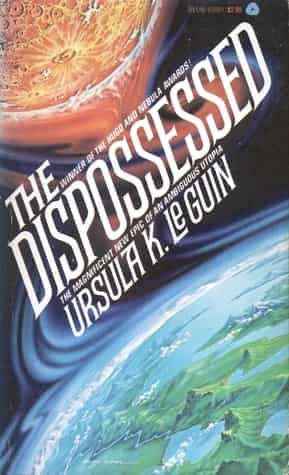Sublime. Carefully constructed, nuanced, warmly empathetic, passionately human, complex. If you want a rose-colored ideologue that purports to fix problems with simplistic utopias, look elsewhere. If you want an accounting of our society’s ills, and alternatives that are just as complicated and imperfect, you’re in the right place. She doesn’t shout, preach, or point, just shifts the frame of reference in order to examine our assumptions. Each word choice has weight. Quiet, lovely, and profound. And just as timely now, nearly 50 years later.
Per her introduction in the 2017 Library of America reprint, Le Guin says that this book had to wait for her to learn what she was writing about. As the war raged in Vietnam and the anti-war protests raged at home, she “didn’t want to study war no more,” and instead studied peace:
I started by reading a whole mess of utopias and learning something about pacifism and Gandhi and nonviolent resistance This led me to the nonviolent anarchist writers such as Peter Kropotkin and Paul Goodman. With them I felt a great, immediate affinity. They made sense to me in the way Lao Tzu did. They enabled me to think about war, peace, politics, how we govern one another and ourselves, the value of failure, and the strength of what is weak.
Lao Tzu shadows and lurks and plays in the corner of all her books, but hearing that Kropotkin was an influence too makes me go, of course. (And I found Kropotkin via Graeber and Graeber via Le Guin, so the circle is complete.)
Note: she cites Murray Bookchin, Post-Scarcity Anarchism, as a philosophical and ecological influence too.
